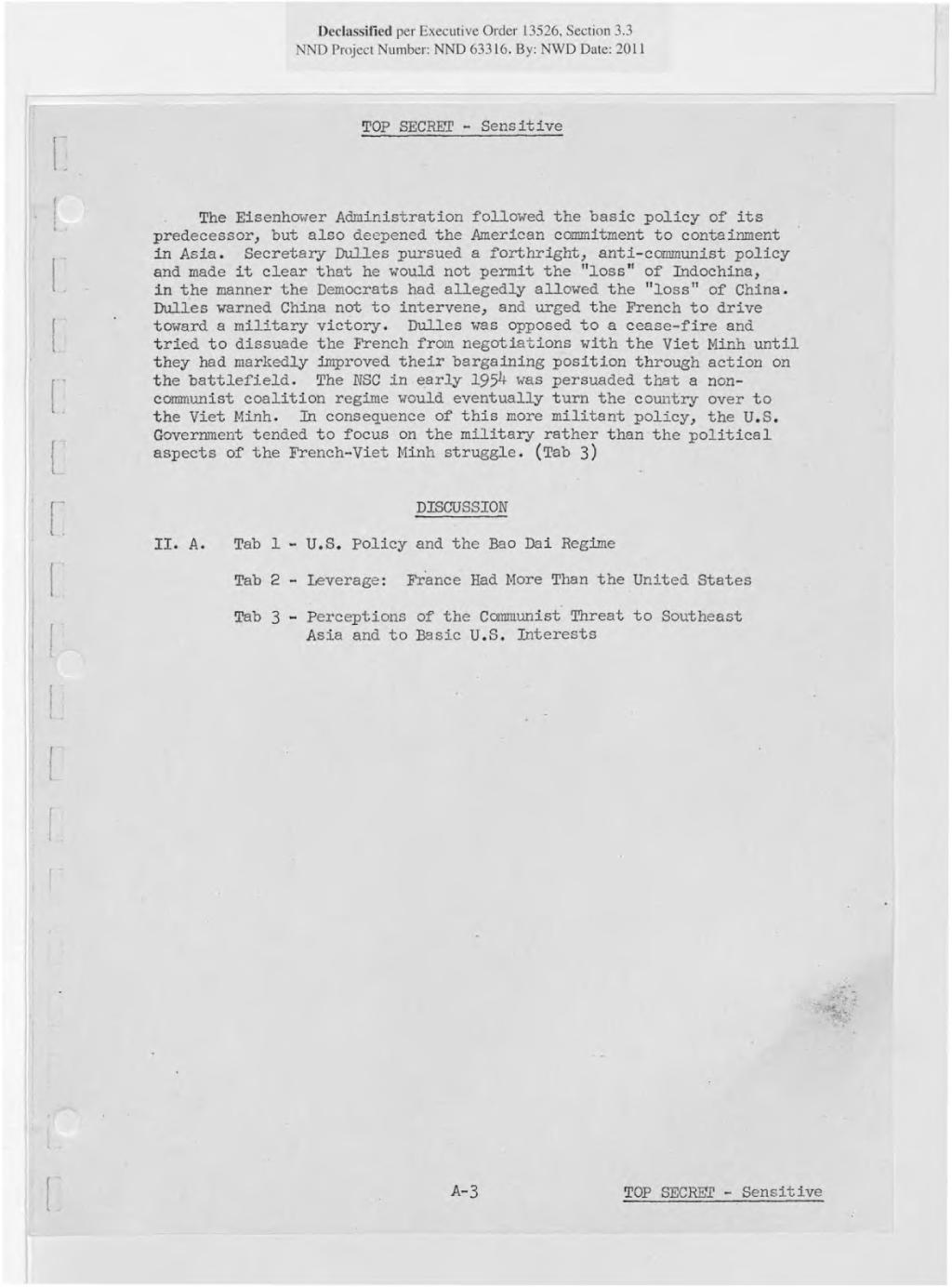Declassified per Executive Order 13526, Section 3.3
NND Project Number: NND 63316. By: NWD Date: 2011
TOP SECRET – Sensitive
The Eisenhower Administration followed the basic policy of its predecessor, but also deepened the American commitment to containment in Asia. Secretary Dulles pursued a forthright, anti-communist policy and made it clear that he would not permit the "loss" of Indochina, in the manner the Democrats had allegedly allowed the "loss" of China. Dulles warned China not to intervene, and urged the French to drive toward a military victory. Dulles was opposed to a cease-fire and tried to dissuade the French from negotiations with the Viet Minh until they had markedly improved their bargaining position through action on the battlefield. The NSC in early 1954 was persuaded that a noncommunist coalition regime would eventually turn the country over to the Viet Minh. In consequence of this more militant policy, the U. S. Government tended to focus on the military rather than the political aspects of the French–Viet Minh struggle. (Tab 3)
DISCUSSION
| II. A. | Tab 1 - U. S. Policy and the Bao Dai Regime |
| Tab 2 - Leverage: France Had More Than the United States | |
| Tab 3 - Perceptions of the Communist Threat to Southeast Asia and to Basic U. S. Interests |
